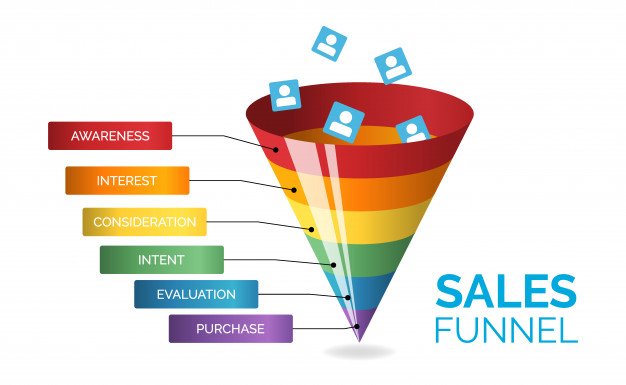If you’re new to the world of marketing, you may have heard the terms “sales funnel” and “marketing funnel” used interchangeably. However, these two concepts are actually quite different from one another. In this blog post, we’ll break down the key differences between a sales funnel and a marketing funnel so that you can better understand how they each work.
A lot of people use the terms “sales funnel” and “marketing funnel” interchangeably, but they’re actually two very different things. A sales funnel is a visual representation of the steps that a prospect takes from becoming aware of your product or service to making a purchase.
A marketing funnel, on the other hand, is a wider view of the customer journey that includes not only the purchase decision but also post-purchase behaviors like customer loyalty and advocacy.
Sales Funnel vs Marketing Funnel: What’s the Difference?
The main difference between a sales funnel and a marketing funnel is that a sales funnel is primarily focused on generating leads, while a marketing funnel is focused on converting those leads into paying customers.
Of course, there is some overlap between the two; for example, both funnels will make use of some form of lead capture (like an email signup form). However, the overall goal of each funnel is different.
A sales funnel is designed to bring in as many leads as possible, regardless of whether or not they’re ready to buy. The idea is that even if only a small percentage of leads end up making a purchase, the volume of leads generated by the sales funnel will make up for it.
A marketing funnel, on the other hand, is designed to nurture leads and build relationships with them over time so that they eventually make a purchase. Because of this focus on relationship-building, marketing funnels tend to be slower than sales funnels. However, they ultimately convert more leads into paying customers.
For one thing, a sales funnel is usually shorter than a marketing funnel since the goal is to close a sale as quickly as possible.
Additionally, the stages of a sales funnel are generally more concrete and linear than those of a marketing funnel, which can be more fluid and nuanced. Finally, while both funnels aim to eventually generate revenue for a business, only the sales funnel can do so directly; the marketing funnel’s primary goal is generating leads for the sales team.
Stages of Sales Funnel
There are four main stages of a typical sales funnel:
1. Awareness: In this stage, businesses focus on getting their products or services in front of potential customers. This can be done through various marketing channels, such as paid advertising, social media, and content marketing.
2. Interest: Once potential customers are aware of your product or service, it’s time to generate interest in what you have to offer. This can be done through lead magnets, such as ebooks or webinars.
3. Decision: In this stage, potential customers are evaluating your product or service and decide whether or not they want to make a purchase. This is where things like free trials or demos can be helpful in convincing someone to buy your product or service.
4. Action: Finally, this is the stage where customers actually make a purchase and become paying customers.
Conclusion
Marketers need to understand both sales funnels and marketing funnels in order to be successful in today’s business world. By understanding the key differences between these two concepts, you’ll be able to better craft campaigns that will help you achieve your business goals.
A sales funnel focuses on generating leads while a marketing funnel focuses on converting those leads into paying customers. Of course, there is some overlap between the two types of funnels—but ultimately, they serve different purposes. So which type of funnel should you use for your business? It depends on what stage your business is in and what your overall goals are.



